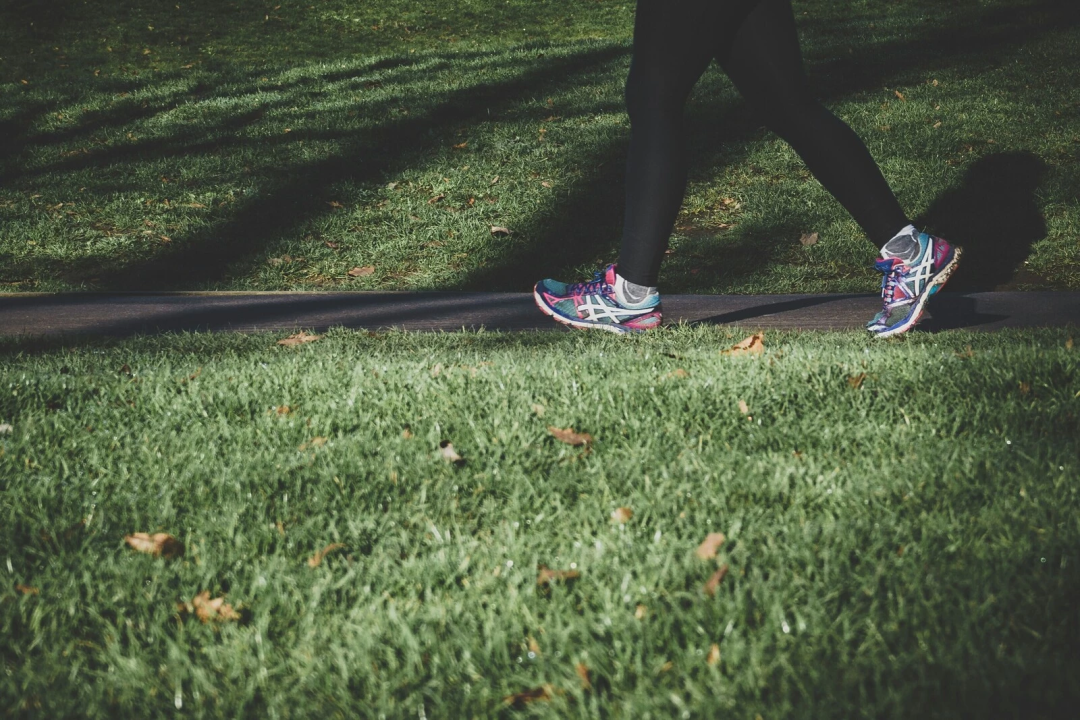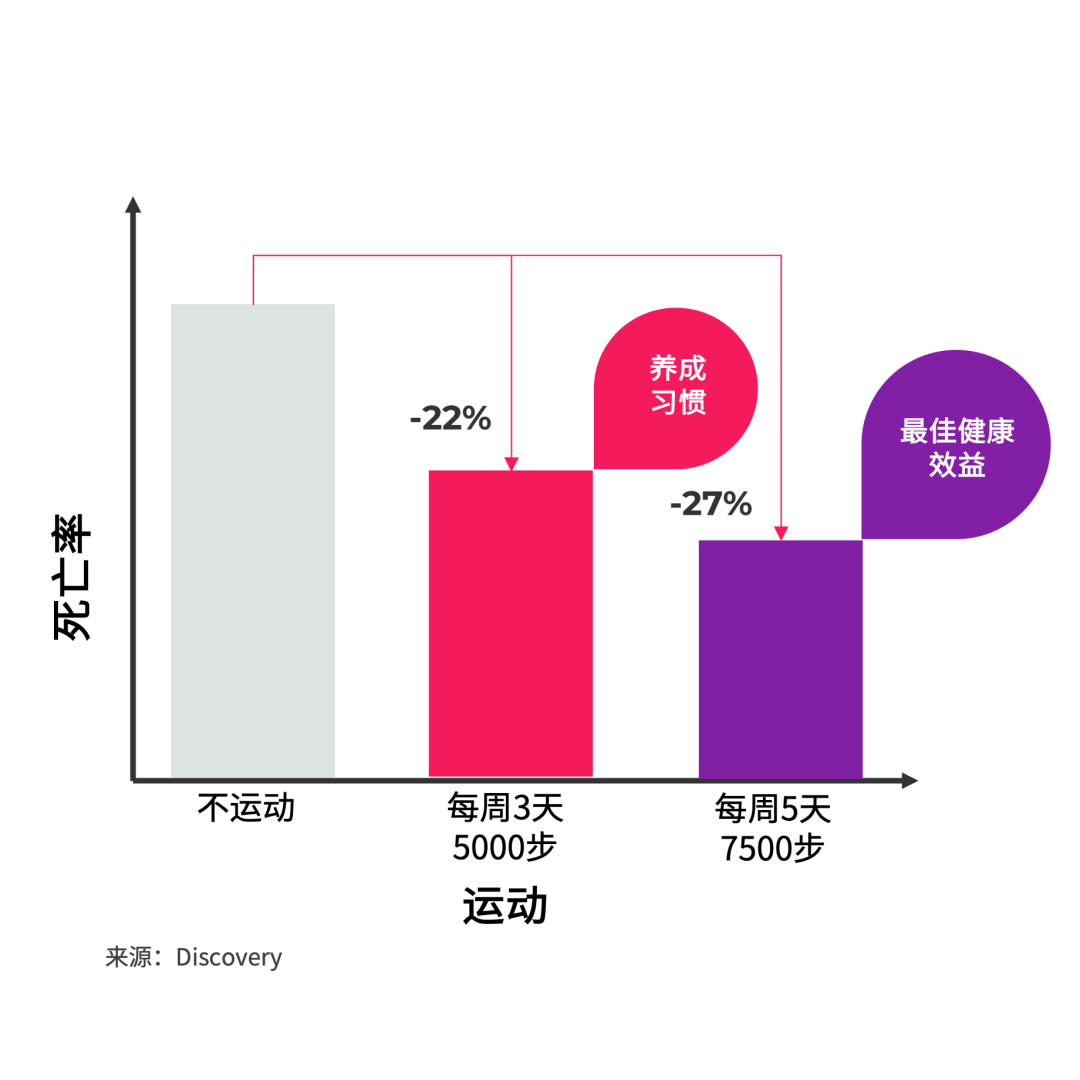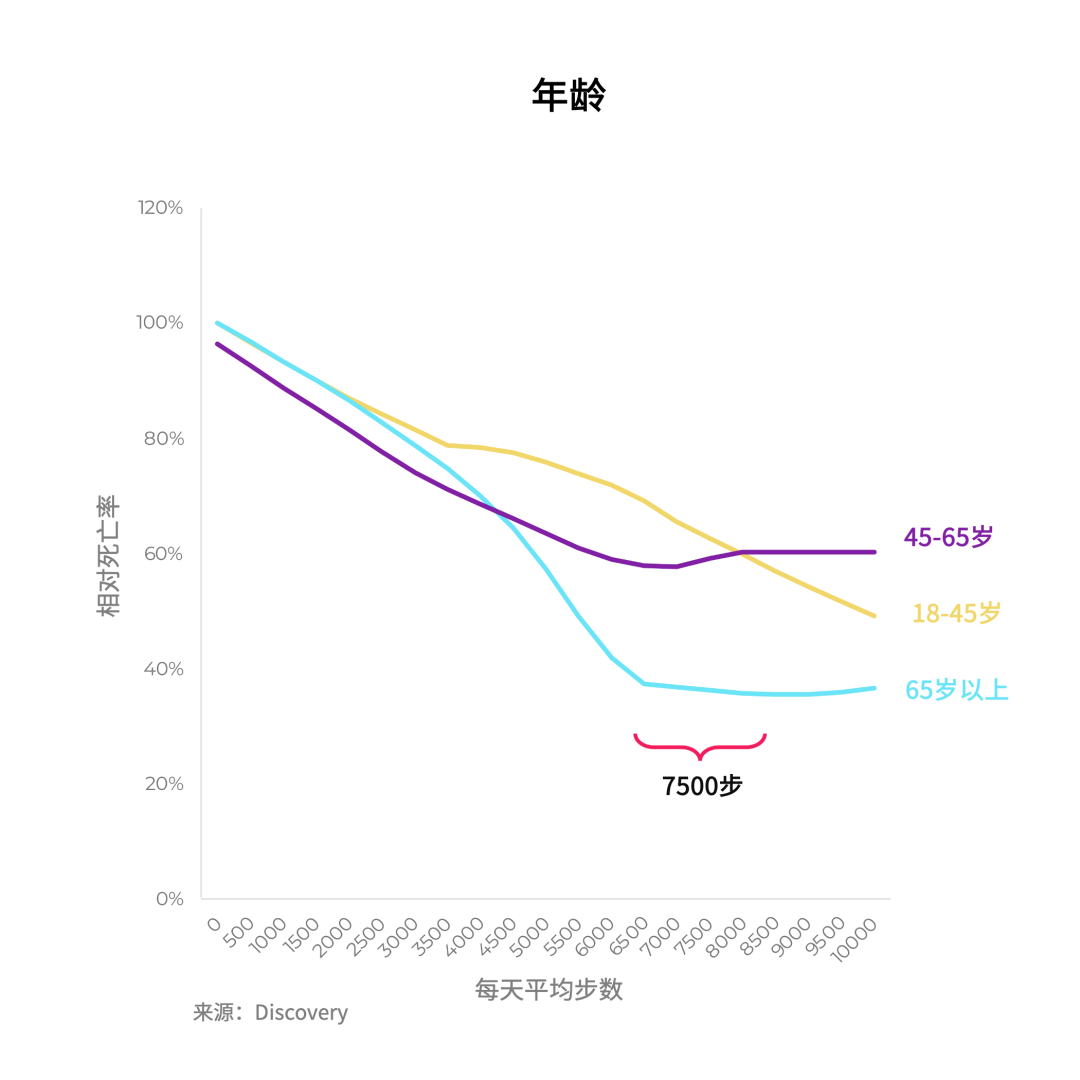Home/News/Walking 7,500 steps daily can significantly reduce mortality rates, with the effect becoming more pronounced as age increases./
Walking 7,500 steps daily can significantly reduce mortality rates, with the effect becoming more pronounced as age increases.
2024-06-07
,
:Unsplash/Arek Adeoye
Adrian Gore
Discovery
,Discovery Vitality,100Vitality
: Discovery
7500,,
:Discovery
These findings provide robust, real-world evidence for governments and health policymakers, helping to encourage healthier habits and improve public health outcomes.Research provides a core approach for anyone looking to start building an exercise habit. The Staircase Method is the most effective way to establish and stick to a consistent routine, leading to positive health benefits. The key lies in:- Set a goal based on your own health condition.
- Start small by choosing a simple, manageable form of exercise. Remember to maintain a consistent frequency and stick with it.
- Repeat the exercise for 6–8 weeks, then try increasing the intensity.
Government and policymakers should also consider strategically implementing short-term incentive programs to encourage people to gradually adopt habits that deliver significant health benefits. At the same time, they should invest in urban environment and well-being initiatives aimed at fostering active, lifestyle-oriented behaviors among citizens.Businesses also play a critical role in improving societal health. By developing health and wellness strategies, companies can deliver targeted, effective interventions to protect and enhance their employees' well-being.This includes integrating physical activity into workplace wellness programs and daily routines, thereby enhancing employees' mental health and boosting productivity. Such a strategy requires robust data and reporting mechanisms to track progress and gain insights into its broader impacts.We need to shift our perspective on personal health and, when necessary, rethink and restructure our heuristic approaches—simplified thinking patterns that allow us to make quick, efficient judgments.Maintaining good health doesn’t have to be difficult—or expensive. We can start small and gradually shift our habits over time. Moreover, we shouldn’t assume that the older and weaker we become, the harder it is to reap the benefits of healthy behaviors. Remember, no matter when you decide to make a change, it’s never too late to begin.
The above content solely represents the author's personal views.This article is translated from the World Economic Forum's Agenda blog; the Chinese version is for reference purposes only.Feel free to share this on WeChat Moments; please leave a comment below the post if you’d like to republish.
Translated by: Di Chenjing | Edited by: Wang Can
The World Economic Forum is an independent and neutral platform dedicated to bringing together diverse perspectives to discuss critical global, regional, and industry-specific issues.
Follow us on Weibo, WeChat Video Accounts, Douyin, and Xiaohongshu!
"World Economic Forum"







